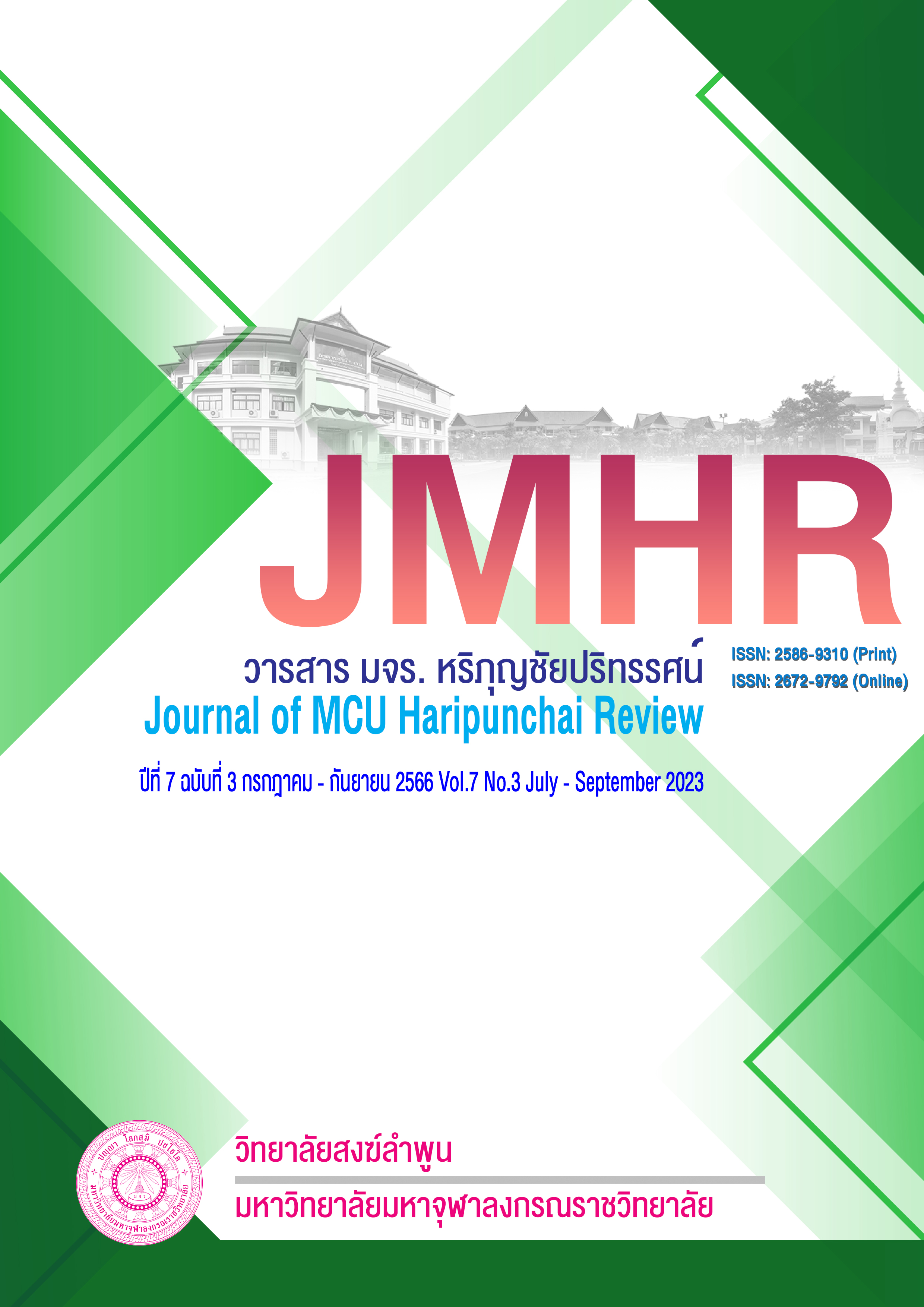Guidelines for Developing Learning Management by Utilizing the Four Iddhipata Principles at Doisaket Phadungsat School in Doisaket District, Chiang Mai Province
Main Article Content
Abstract
The purposes of this research were 1) to explore and analyze the current conditions of learning management of Doisaket Phadungsat School, Doisaket District, Chiang Mai Province, and 2) to examine the development guidelines for learning management according to the four Iddhipãta principles of Doisaket Phadungsat school. This study was a qualitative research and 8 key informants consisted of the school director, 2 deputy directors, 2 operational teachers and 3 experts/representatives of the school committee, the tools were an interview framework and focus group discussion. The data was the content analysis.
The findings indicated that:
1) The problems of learning management were weak point and limitation of Doisaket Phadungsat School, Doisaket District, Chiang Mai Province by having 8 issues, especially, the issues that were problem for learning management, including policy determination in the administrative process and personnel learning management, still the lack of serious participation, lack of integration of the P D C A processes in learning management continuously and the determination of visions, goals, strategies and various measures regarding learning management of the educational institute that was still unclear This was an issue that must be resolved urgently.
2) Development guidelines for learning management according to the four Iddhipãta principles of Doisaket Phadungsat School, Doisaket District, Chiang Mai Province found that: 1) guidelines for determining policies in the process of administration and leaning management of the educational institute by integrating the P D C A process with active participation of personnel according to the four Iddhipãta principles, and 2) guidelines for learning management and teacher’s preparation by increasing learning management skills and learning-problem solving according to the four Iddhipãta principles, namely Chanda: loving, Viriya: diligence, Citta: active thought, and Vimamsa: using wisdom in investigation.
Article Details

This work is licensed under a Creative Commons Attribution-NonCommercial-NoDerivatives 4.0 International License.
References
กองพุทธศาสนา. (2561). คู่มือโรงเรียนพระปริยัติธรรม. [ออนไลน์]. แหล่งข้อมูล : http://deb.onab.go.th /index.php. [25 ตุลาคม 2564].
ณัฏฐ์ณพัชร์ อ่อนตาม (2562). เทคนิคการบริหารงานแบบ PDCA (Deming Cycle). วิทยานิพนธ์ครุศาสตรมหาบัณฑิต สาขาวิชาการบริหารการศึกษา. มหาวิทยาลัยราชภัฏอุบลราชธานี.
พระครูใบฎีกาบุญชู ชุติปญฺโญ. (2554). รูปแบบการบริหารโรงเรียนพระปริยัติธรรม แผนกสามัญศึกษา. วิทยานิพนธ์ครุศาสตรดุษฎีบัณฑติ. มหาวิทยาลัยวงศ์ชวลิตกุล. 1 (1),
พระครูพิศาลธรรมานุวัตร (สมนึก เตชธมฺโม) พร้อมคณะ. (2563) การพัฒนาการจัดการเรียนการสอนธรรมศึกษาตามหลักอิทธิบาท 4 สำหรับโรงเรียนมัธยมศึกษา. วารสารครุศาสตร์ปริทรรศน์ฯ, 1 (1), (มกราคม - เมษายน). 4.
พระมหาบรรจง ติสรโณ (ศรีสุข). (2560). ศึกษาการประยุกต์ใช้หลักอิทธิบาทธรรม 4 ในการจัดการเรียนการสอน ของโรงเรียนปริยัติคุณรสวิทยา อำเภอเมืองสุรินทร์ จังหวัดสุรินทร์.วิทยานิพนธ์ปริญญาพุทธศาสตรมหาบัณฑิต (สาขาวิชาพระพุทธศาสนา). มหาวิทยาลัยมหาจุฬาลงกรณราชวิทยาลัย.
โรงเรียนดอยสะเก็ดผดุงศาสน์ . (2564). แบบรายงานการประเมินตนเองของสถานศึกษา พ.ศ. 2564.


